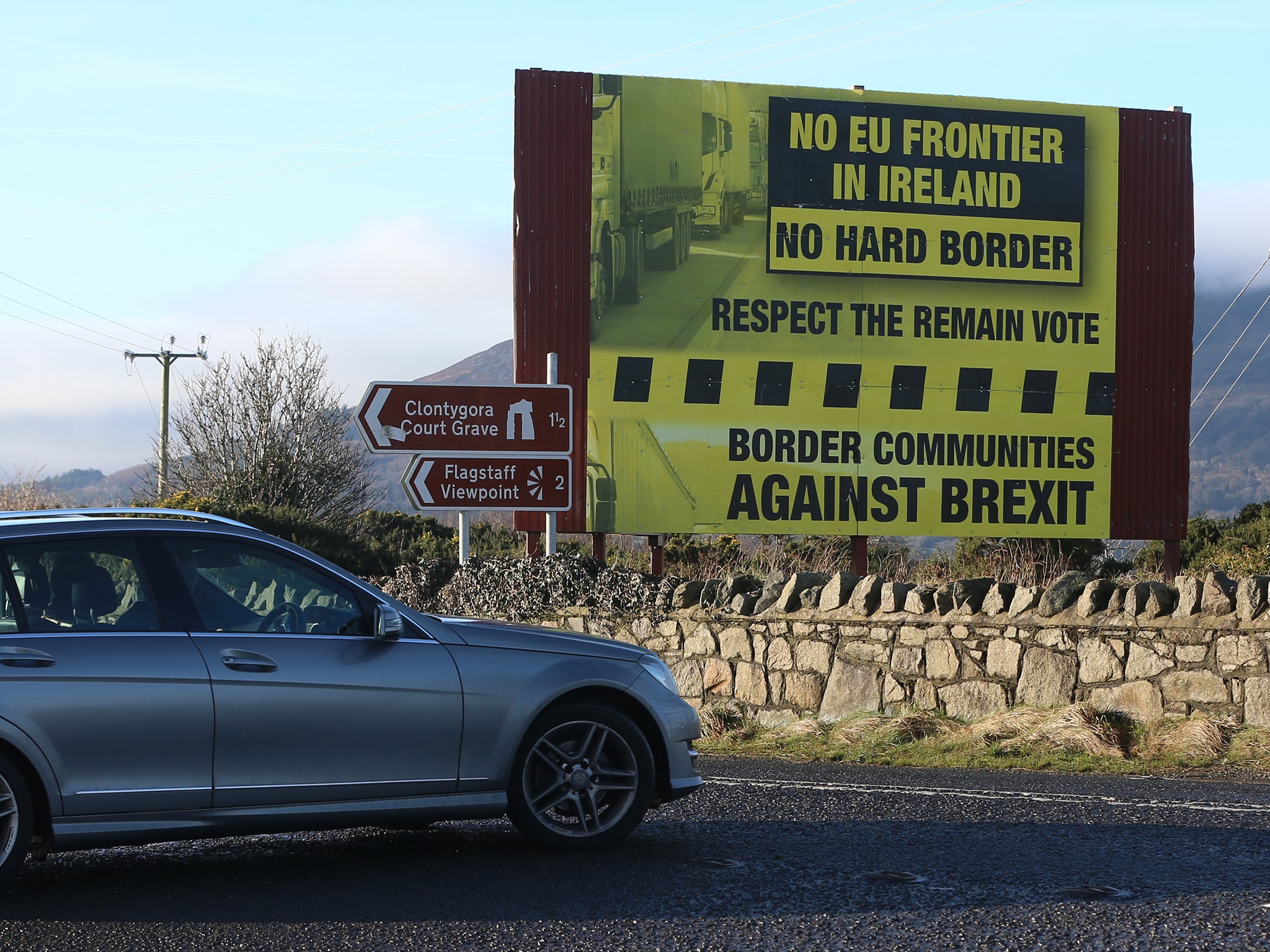United Ireland referendum is inevitable after Brexit, says Irish parliamentary report author
'It is clear that everybody believes that at some stage there will be a referendum'

Your support helps us to tell the story
From reproductive rights to climate change to Big Tech, The Independent is on the ground when the story is developing. Whether it's investigating the financials of Elon Musk's pro-Trump PAC or producing our latest documentary, 'The A Word', which shines a light on the American women fighting for reproductive rights, we know how important it is to parse out the facts from the messaging.
At such a critical moment in US history, we need reporters on the ground. Your donation allows us to keep sending journalists to speak to both sides of the story.
The Independent is trusted by Americans across the entire political spectrum. And unlike many other quality news outlets, we choose not to lock Americans out of our reporting and analysis with paywalls. We believe quality journalism should be available to everyone, paid for by those who can afford it.
Your support makes all the difference.A referendum on a united Ireland is inevitable following the Brexit vote, the author of a report by an Irish parliamentary committee says.
The study urges both Dublin and London not to repeat the fallout from Britain’s EU referendum by failing to prepare for the possibility it will lead to Irish reunification.
Mark Daly, the Fianna Fáil Senator, who compiled the report, said: “Last year, our former Taoiseach, Enda Kenny, said the EU needs to prepare for a united Ireland.
“And it's clear from the 17 recommendations by the committee that a lot of work needs to be done in advance of a referendum.”
Mr Daly added: “From talking to people in both communities in the North, it is clear that everybody believes that at some stage there will be a referendum.
“But we must learn the lesson from Brexit and the lesson from Brexit is that you don't have a referendum and then tell people what the future will look like.
“What you do is you lay out the future in great detail, you talk about the issues of great concern to all communities.”
The report – entitled Brexit and the Future of Ireland: Uniting Ireland and its People in Peace and Prosperity – sets out detailed options for the island of Ireland in the wake of Brexit.
It calls on the Republic, in the final Brexit agreement between the EU and the UK, to demand a “special status” for Northern Ireland and that there should be no new passport controls.
Published by the Joint Oireachtas Committee on the Implementation of the Good Friday Agreement, the report also emphasises the need to protect EU structural funds in Northern Ireland, after Brexit.
Last year, Northern Ireland broke with England by voting against Brexit, by 56 per cent to 44 per cent.
Since then, the issue of the Irish border has emerged as crucial in the exit negotiations, with Brussels insisting progress is a red line before trade talks can begin.
The Irish government declared it wants special status for Northern Ireland after Brexit, rejecting Britain’s suggestion that better technology can police trade between North and South after 2019.
Meanwhile, under the terms of the Good Friday Agreement, the UK Government is legally obliged to hold a referendum on Irish reunification if polls show support for one.
Furthermore, ministers have acknowledged that Northern Ireland, if it backed reunification, would be able to rejoin the EU as part of a united Ireland with the Republic.
Unlike Scotland, which has been told it would have to reapply for membership of the bloc if it ever backed independence, the North would automatically be part of the EU.
“Northern Ireland would be in a position of becoming part of an existing EU member state, rather than seeking to join the EU as a new independent state,” Brexit Secretary David Davis wrote, earlier this year.
It is thought to be the first report by an Irish Government, department or parliamentary committee into achieving Irish unity for more than 30 years.
One opinion poll suggested that voters in the Republic overwhelmingly back reunification, putting support at 79 per cent.
However, a BBC poll, in September last year, found 63 per cent of people in Northern Ireland supported staying in the UK, with only 22 per cent backing a united Ireland
Join our commenting forum
Join thought-provoking conversations, follow other Independent readers and see their replies
Comments